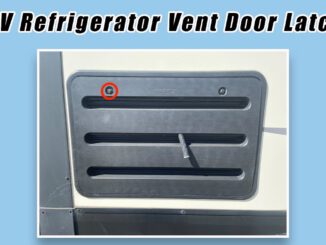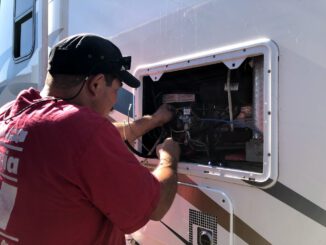If your RV refrigerator smells like ammonia you need to take action. It’s not something where you can wait three or four days to finish your camping trip before dealing with the issue. Ammonia is a toxic gas and can be harmful in the confined space of an RV or camper.
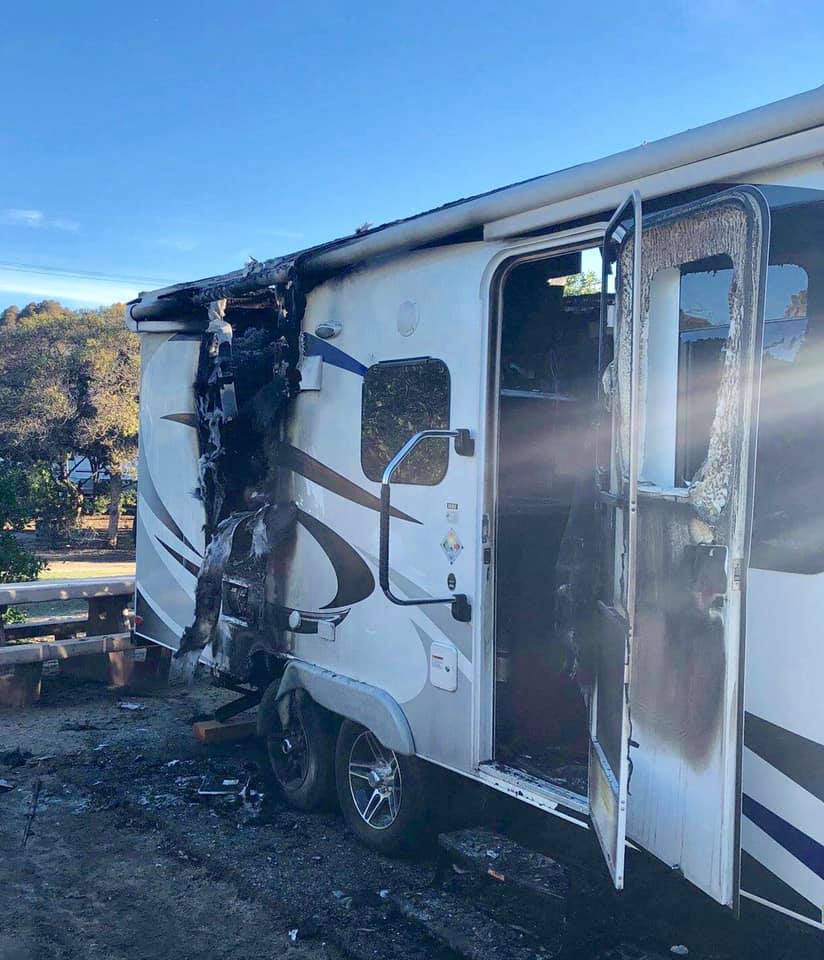
Signs of leaking ammonia
While the smell of ammonia is oftentimes enough to alert your senses that something is off, there is something else you can look out for: yellow staining near the refrigerator. If you notice green-yellow coming from your refrigerator and green-yellow stains begin to appear in and around your fridge, it is pointing to a likely ammonia leak.
If you suspect a leak, you should always refrain from lighting any burners, stoves, lighters, or matches that can cause ignition.
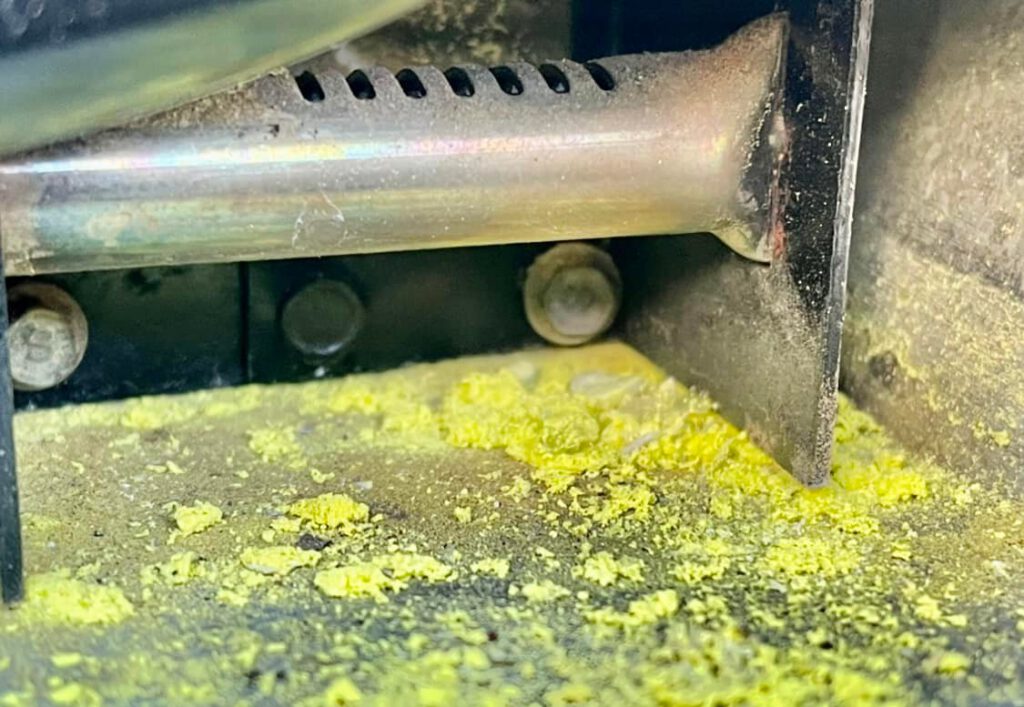
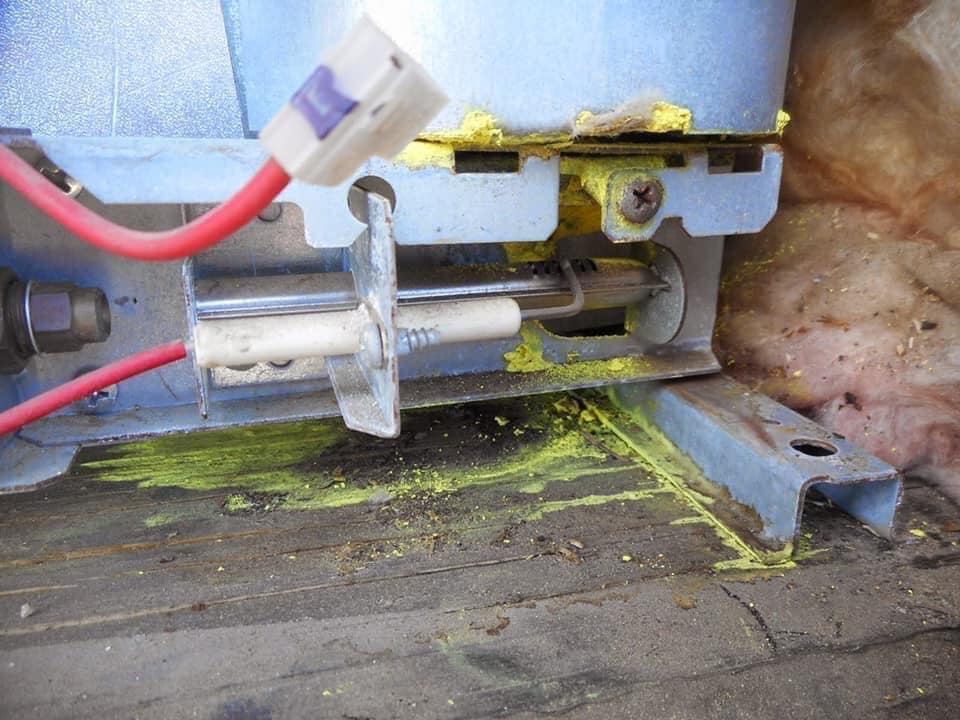
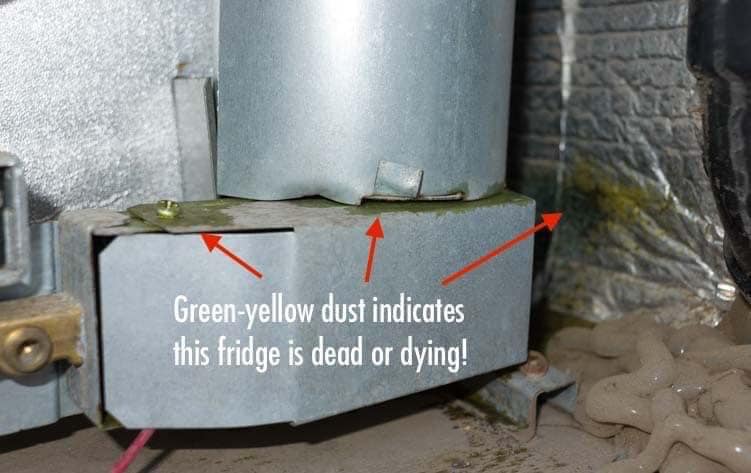
Risks with ammonia leaks
There are two types of risks when it comes to ammonia leaks:
- Exposure
- Fire and explosion
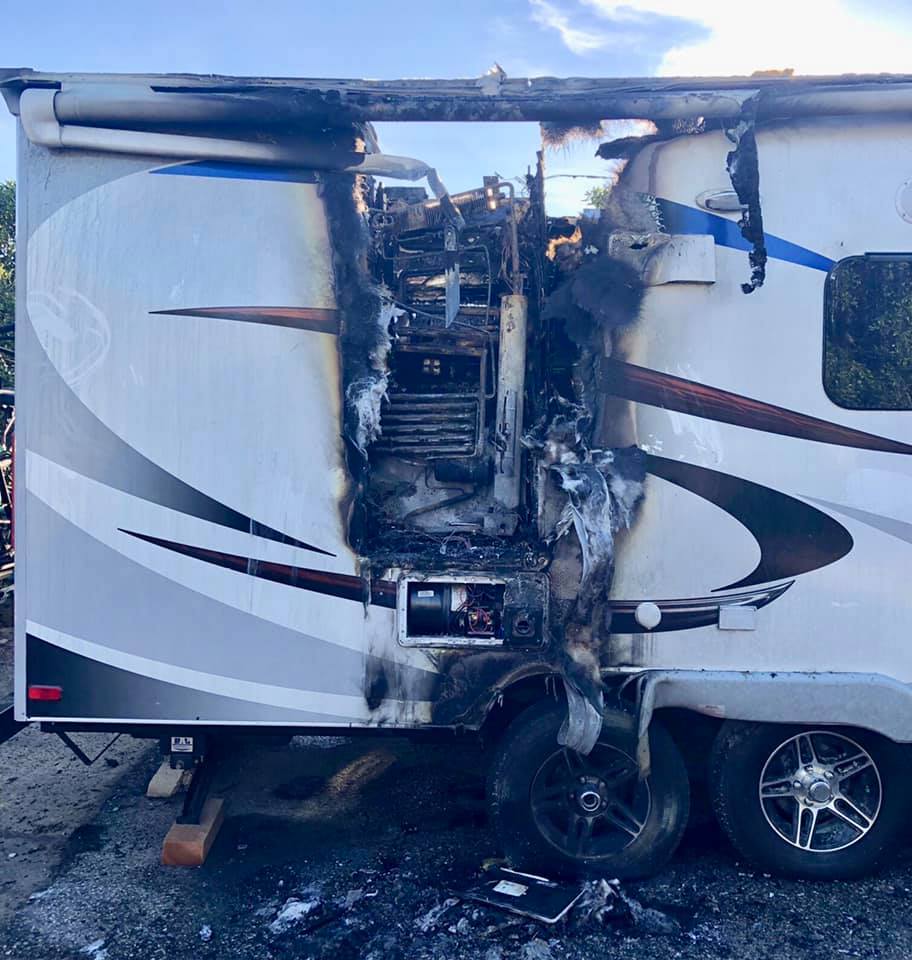
Ammonia exposure
Ammonia is a toxic chemical that, in high concentrations, can be dangerous to humans.
If you think you have been exposed to ammonia in your RV or camper, it’s important to take the exposure seriously.
If you suspect ammonia exposure, take these steps
- Seek immediate medical advice and/or attention if you feel burning of the nose, throat and/or respiratory tract.
- If exposed, wash eyes and skin as quickly as possible with large amounts of water.
- Open windows and doors to ventilate the area.
- Turn off the energy supply (propane) to the refrigerator.
- So long as it is safe, go outside your RV or camper into the fresh air.
Ammonia fire and explosion hazard
High concentrations of escaped ammonia in a confined area such as an RV or camper can be a fire and explosion hazard. That said, ammonia doesn’t pool like other gases so it poses less of a risk of fire and explosion than propane.
Again, if you suspect a leak, you should always refrain from lighting any burners, stoves, lighters, or matches that can cause ignition.
Make sure to see your refrigerator and/or manufacturer owner’s manuals for additional details, maintenance, and safety information.
If you suspect there’s a problem, contact your local RV repair shop and make an appointment to have it checked out.
This is another reason to have your RV refrigerator serviced at least once a year.
Hope this helps you better understand the seriousness of this situation. Contact us to schedule a RV refrigerator inspection or to find out more about service see the link below.


